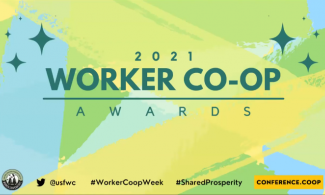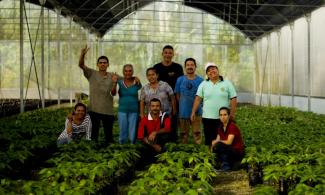If you have any sessions or topics that you'd like to see us address at the Rendezvous, please fill out our Session Interest Form.
Dancing with radical economics at the DisCO
This week, after a a few delays, I was finally able to interview a couple of the masterminds behind DisCO (Distributed Cooperative Organization). I spoke to Stacco Troncoso (@StaccoP2P) and Natalia Avlona who are both members of the crew working on DisCO, also called DisCONAUTS.





